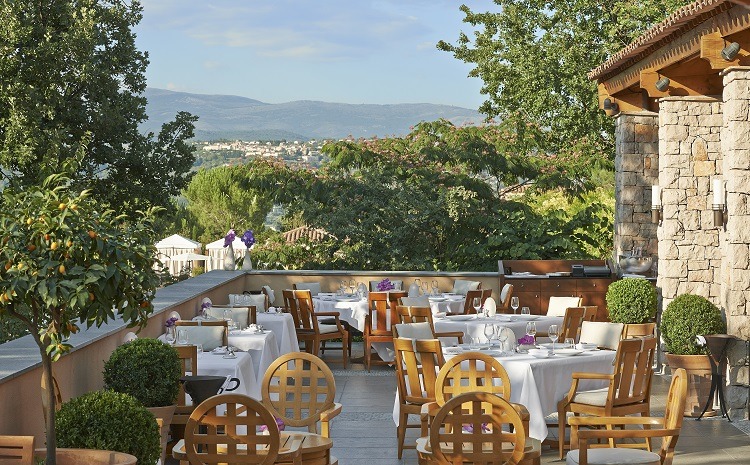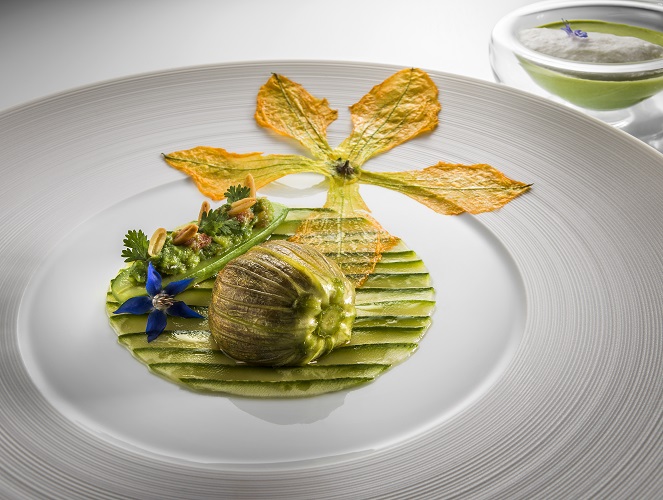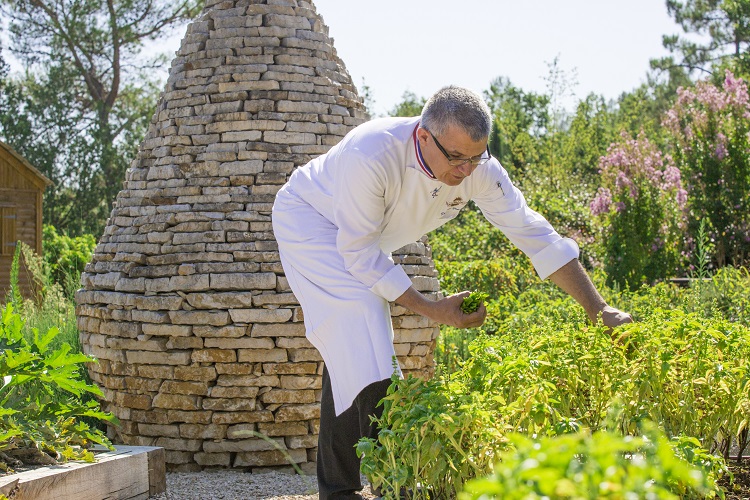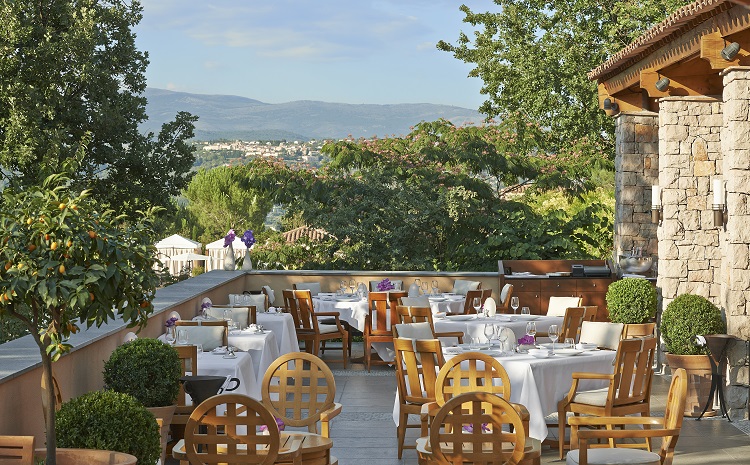Provence On A Plate: The Casual Charms Of Eating And Drinking In Rosé Country
Think of southern France, and it's hard not to picture glitzy yachts and showy seaside splendor. Inland from the see-and-be-seen coastline, however, there's another world – one of unspoiled, untidy nature; rustic, crumbling medieval towns; and green hillsides crowded with vines responsible for some of the world's best rosés.
Because my life motto happens to be "will travel for good food," I embarked on a Provençal foodie odyssey to see if the region's cuisine reflected the scenery. I chose to base myself at Terre Blanche, a 750-acre gastronomy resort set in the green hills of Provence. Bigger than the nearby principality of Monaco, this palatial property operates like its own little village with five on-site restaurants, including the Michelin-starred Le Faventia. It also houses two award-winning 18-hole championship golf courses and one of biggest spas in all of France, but food remained the highlight.
In late April, the hotel's endless, hilly grounds teem with fragrant flowers and fresh, wild herbs.
"We have an herbal garden that has about 17 herbs, including stevia, a natural sweetener to replace sugar," says Terre Blanche's head chef Philippe Jourdin. The perfumed air is thick with bees, whose honey you'll find on the breakfast tables—alongside some impossibly flakey and impeccably French viennoiserie, baked onsite.
"Provence presents a sweet way of life, thanks to the sun and the exceptional climate. It's very healthy, fresh food and local produce. It's the way we live here," says Chef Jourdin.
When I ask him how important it is to use these local and seasonal ingredients in his cooking he tells me, "It's basic. It's the philosophy. It's the main thing in the cuisine." Because of this attitude, the menus at Jourdin's Terre Blanche restaurants are in a constant state of change.
"Now, we are cooking asparagus, which we will cook until June when it's finished," he says. "After [the asparagus season is] over, we will have to change the menu. Now, we cook la morille [morel mushrooms], but in two weeks, that's it. We have to adapt depending on the produce of the region." There's no talk of shipping in food, rather, he speaks frankly, as if this is simply what is done in Provence.
He wistfully tells me about a dish fashioned from zucchini flowers, and phantom tastes appear in my mouth. I couldn't help but feel a short-lived sadness with never being able to taste this dish—not until next year anyway, and only if Chef Jourdin judges the zucchini flowers suitable that year.
Yet good products aren't hard to come by in this part of the world, and each season has its own treasures. His favorite spot for a treasure hunt?
"Marché Forville in Cannes; it's a beautiful market of only food. You have in the market a special area dedicated to local family producers, and that is my favorite place in the market. It's a secret place."
The ancient hilltop towns peppered throughout the view from Terre Blanche are also sources of extraordinary raw materials: "At Callian, one of the little medieval villages, we get andouillette; some of the best in France." The andouillette, a coarse pork sausage made with chitterlings, is cooked at Terre Blanche's outdoor rotisserie. The smell is unmissable and—shocking for anyone who thinks they couldn't possibly eat pig intestines—mouthwatering.
Chef Jourdin shows me a video on his phone of bleating goats that he took that morning while visiting with a new goat cheese producer.
"It's about the relationships with the producers," he explains, while we admire the happy goats.
"There's a little vineyard, very close to Terre Blanche about 15 minutes away by buggy [the hotel has a fleet of buggies for guests to explore the surrounding area]. It's called Château des Selves, and the owner is called Mylène and she produces, of course, wine, but also olive oil. We have a close relationship with her, and we work with her and serve Château des Selves oil olive at Terre Blanche."
That evening, I try Mylène's olive oil at dinner with blistering, oven-fresh bread made onsite at the hotel's own boulangerie. The local sun-colored oil tastes like the air surrounding my patio table: aromatic, earthy, green.
"Terre Blanche is a destination within itself. So it's not only about what you have on your plate, but also the environment. You have nature all around you. It's the nature and the environment combined with the cuisine. It's an experience," explains Chef Jourdin. "There's lots of Michelin-started restaurants around here, but here, it's the whole experience. You're outside, in nature; it's different."
Of course, it's impossible to talk about Provence and not mention rosé.
"Provence is famous for their rosés because we have the perfect terroir, grapes, and climate to do so," says Aurélie Esmery, a sommelier at Terre Blanche. "Also, 90 percent of the wine production is about rosé, and when you are so focused on something, you have to do your best."
Finding a bad bottle of rosé in the area is actually a challenge—and at Terre Blanche, it's an impossibility. A better task would be finding a new favorite.
"My favorite local rosé is Clos Cibonne in Pradet, because they make a gastronomic rosé with an ancient Mediterranean grape called Tibouren that you can find only there." (Rumor has it that this was the favored varietal to Julius Caesar as well.) "Its color is amazing, and you can keep it in your cellar for years," advises Esmery.
There's a certain jovial informality to this summery wine that Provence embraces, rather than shies away from in order to elevate it into something more grand: "Provençal food goes perfectly with rosé but also barbecues with friends—like the tapas and dishes coming from the rotisserie of Le Gaudina."
There's an elegance in this gastronomic straightforwardness, in the simplicity of knowing who you are and believing in it. It's a sentiment that Chef Jourdin echoes.
"The philosophy at Terre Blanche is it's the Provençal way of life, which is convivial, casual. Even if you're in a Michelin-starred restaurant, it's important to share a meal with friends. When you arrive at Le Faventia, you have shared bread; it's made to share. There's no pretension. It's Provence on your table. It's warm."
And with all that annual sunshine, isn't that how it should be?
Travel expenses and food for this article were paid for by Terre Blanche.



